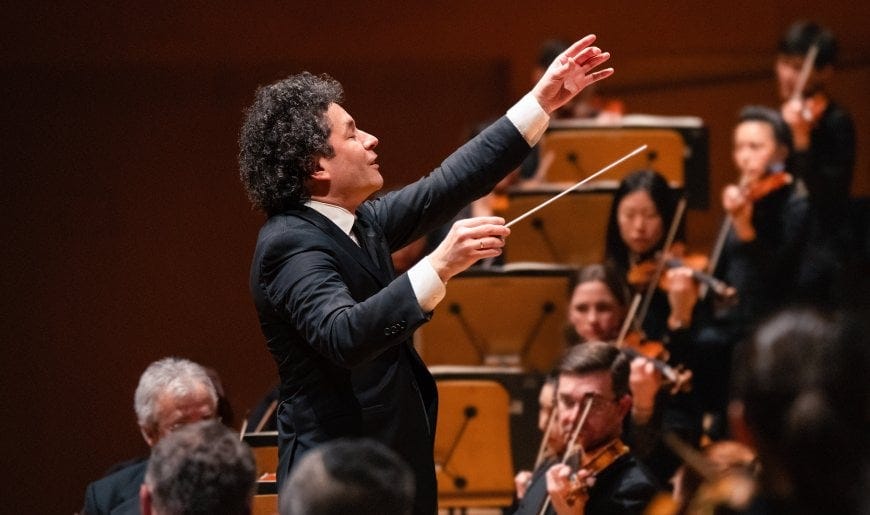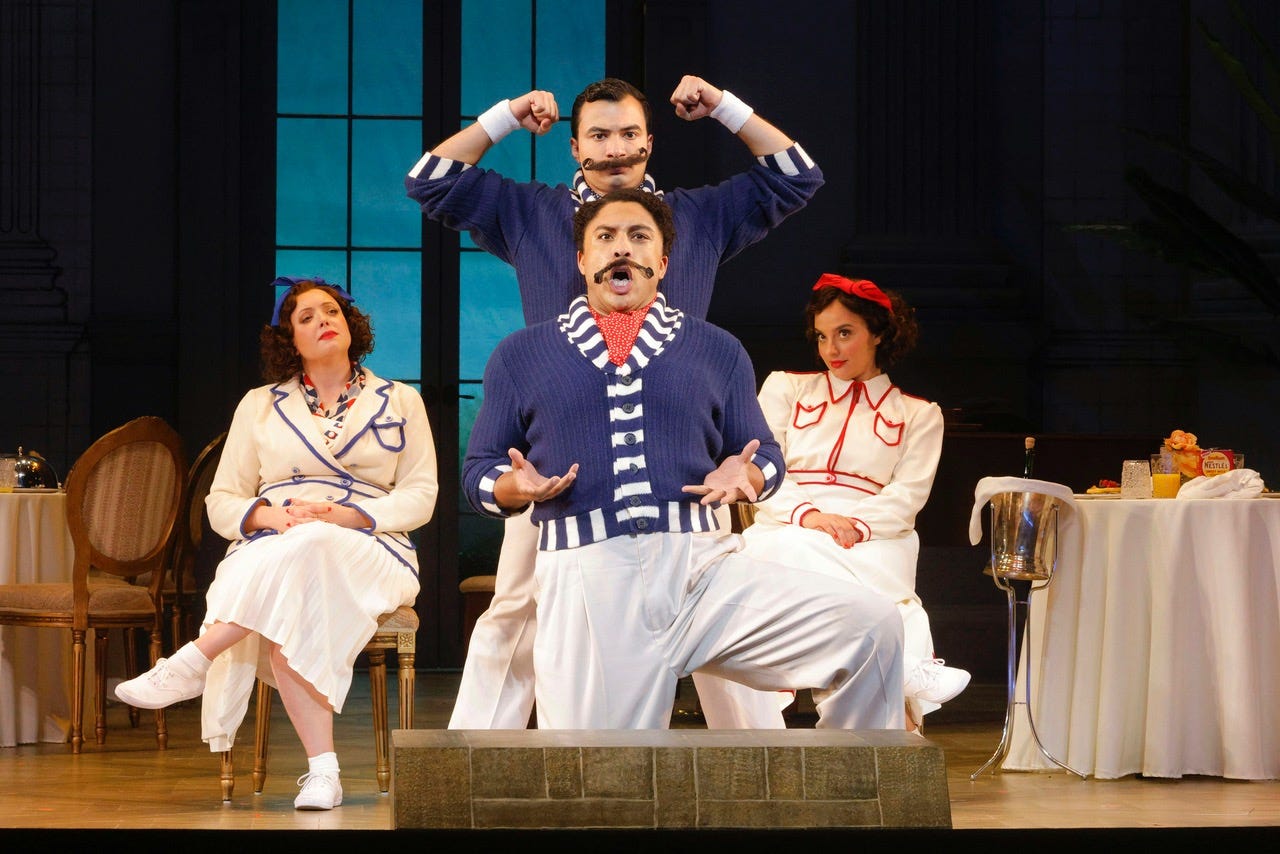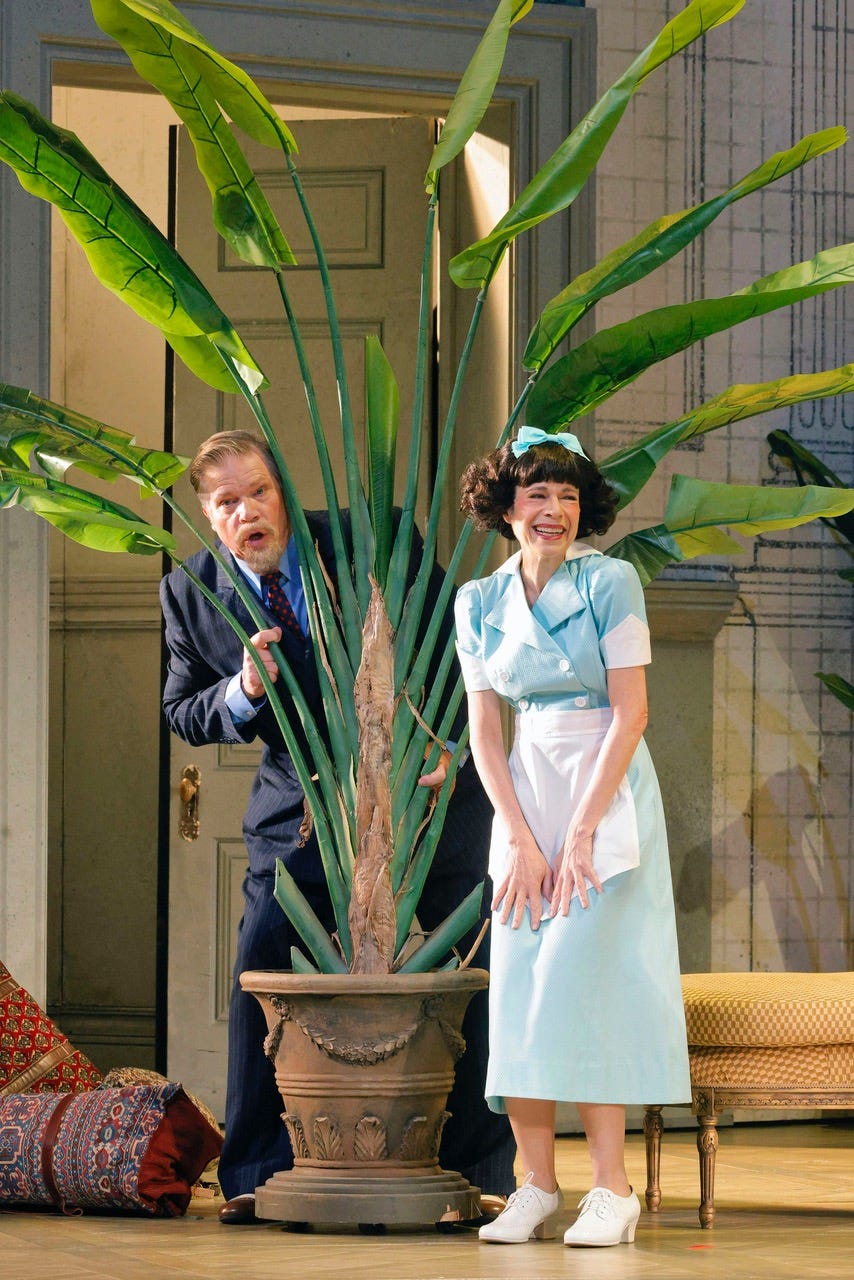Mahler and Mozart Light the Sky Downtown
Dudamel leads the LA Phil and Conlon presides over "Cosi fan tutte"
By Donna Perlmutter
Besotted with Mahler. Mahlermania. Marveling at Mahler. A Mahlerthon Forever.
And Mahler Grooves.
Remember that one? From the ‘60s? With the buttons and bumper stickers? When the Mahler Society came into being, kicked off here by Avik Gilboa, leader of the all-day, all-night gatherings where fans listened to the many recordings unto oblivion?
Well, the LA Phil has resurrected it in mini-form, the 2025 edition.
Which means that, by now, you just mention the name Gustav Mahler and a whole generation of enthusiasts rightfully rushes the boxoffice -- wherever his music’s performances turn up.
And so they did these past few weeks, to Disney Hall. This time the LA Philharmonic and Dudamel put on a Mahler celebration that even included - coincidentally? - an entry by Alma Mahler on International Women’s Day. (And that must be a complement to Black History Month and tributes to all the other social minorities.)
But the crux of its programming -- her Five Songs and his most beloved 5th Symphony -- could just as easily have happened on a Valentine’s Day, since both of them composed these works when they had just met, yes, a romance between two stars of fin-de-siècle Vienna.
The soulful resonances from their music, though, far outreach common sentimentality. Her work, orchestrated here by David and Matthew Collins, had Sasha Cooke’s gleaming mezzo-soprano intoning the poetic words, framed by Dudamel’s sensitive cues to the ensemble.
And then the major opus, Mahler Five, emerged much as Dudamel and the orchestra had rendered it a decade ago, this time with greater cohesiveness -- but still the graphic, full-blown, epically delineated thing it ever was.
Even those veterans, trumpeter Thomas Hooten and hornist Andrew Bain, again made their stunning entries, so svelte, sleek, so smooth-toned and timpanist Joseph Pereira so masterfully nuanced, superbly cued -- of course, all the players with their soon-to-depart maestro made this excursion seem like a whole-life event.
And in the big moments every section locked together like one humongous gyrating engine, all its components in mobile force, storming the heavens.
In fact, someone remarked that when the LA Phil’s music director leaves in 2006 to head the New York Philharmonic the audiences there and even that band won’t have the same rapport with him. An unobtainable transfer…
But I harbor no such doubts -- because, after all, Mahler is the composer of our time, the one who mirrors 20th-century angst, who conjures innocence, then can pierce it with a noisy sneering at life’s cruel realities.
What other composer, do you suppose, brought his palpable sensitivity full-bore to the music palette -- or wore his soul on his sleeve as he did?
And is it any wonder that among our current international conductors a number qualify as Mahlerites?
Well, Dudamel has always been one to swallow the oeuvre whole. He led this program, and the others, including Mahler’s 7th Symphony, without a score, almost as if his body, so consonant with the music, was made of it.
His stance, his physical engagement , its contours, its expressions -- all went into invoking heaven’s gates, then to sonorities of lowest depths, followed by the march forward with glorious rhythmic swervings and insinuations, along with lightheartedly loving lurkings as well.
Why, oh why wouldn’t a champion put himself to this task? The answer, of course, lies in the fact that Angelenos already know what to expect and grab up all the open tickets.
The other Mahler programs held us equally in their thrall. There was the adagio from the 10th Symphony that Mahler did not live to finish. (Could he have sensed the coming headwind?)
At any rate, it conveyed in its single movement the full arc of existence — with an unearthly lyricism, a long-breathed sorrow, especially in the section where the viola section played with infinite subtlety.
Only the selections from Lieder und Gesänge and Des Knaben Wunderhorn, sung by a somewhat metallic-sounding Ekaterina Gubanova but a dramatically-inclined Simon Keenlyside, came off without the same nuance heard elsewhere.
Meanwhile, a look back to another time found the LA Opera’s production of “Così fan tutte” in proper Mozartian spirit: fun and frolic, all sorts of tomfoolery, you know, 18th century make-believe and wish-granting deceptions with an underlay of sadness.
Okay. Maybe a little hard to relate to this in a moment of serious political crisis. But wholly agreeable on the basis of some sublime music, its earnest, loving performance by the orchestra under James Conlon’s leadership and a young, agile cast of attractive singers.
This time (after prior LA Opera seasons of Così) we had Michael Cavanagh’s production from San Francisco, here directed by Shawna Lucey. Yes, the 1930s setting was lively and colorful, taking place at something called the Wolfbridge Country Club and centered in a chic drawing room, with potted palms that move (schtick comedy), badminton and billiards being played on the side and silly swim suits worn poolside.
So did the whole thing move beyond rococo farce to social currency? Well, it came closer -- as décor -- if not in an all-seeing way. But judging from the audience response there was plenty to laugh at.
Standouts among the cast included Anthony Leon as a sweetly, bright-voiced Ferrando, Erica Petrocelli a gold-toned Fiordiligi, veterans Rod Gilfry with presence to spare as Alfonso and Ana Maria Martinez, a Despina whose entire body angles and bends into the comedic act.





